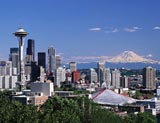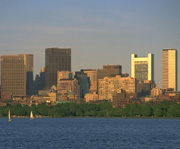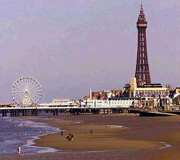塑料带来的问题
|
塑料是我们生活中不可缺少的一种原材料。我们用它制作像购物袋、瓶子或包装等等的日常用品。但那些被我们丢弃的塑料制品最后往往会被倒入海洋中,而事实证明此做法给野生动植物的生存带来极大的挑战。 How many plastic carrier bags have you got in your house? I seem to have cupboards full of them and it feels like they're taking over my home! The ubiquitous shopping bag is just one example of the million things we use made from this useful material, plastic. But unfortunately, it's not the easiest thing to recycle and this is causing an environmental problem. Most of our everyday plastic items end up in landfill, left to rot away for many years. But some of it blows away, blighting the countryside and causing damage to the natural environment and harming wildlife. The problem is most acute in our oceans. Research has found an uninhabited island in the South Pacific is littered with the highest density of plastic waste anywhere in the world. Henderson Island, part of the UK's Pitcairn Islands group, has an estimated 37.7 million pieces of debris on its beaches. The study, published in the journal Proceedings of the National Academy of Sciences, described how remote islands act as a 'sink' for the world's rubbish. They become collecting points for fishing items and everyday things including toothbrushes, cigarette lighters and razors; things that we throw away. Dr Jennifer Lavers from the University of Tasmania says "Almost every island in the world and almost every species in the ocean is now being shown to be impacted one way or another by our waste." This highlights the potentially deadly effect of our disposable culture. When we throw something away, it doesn't just disappear, it goes somewhere and because of the durable nature of plastic, it takes a long time to decompose and stays there causing great damage to the ocean's ecology. Some other recent worldwide research estimates that 90% of all seabirds have swallowed plastic. And worse still, this plastic is broken down into tiny particles over a long period by the wind and the waves, then sea creatures at the bottom of the food chain ingest them. These creatures are eaten by the fish that we eventually consume. The solution to this problem would be to use less plastic. Several countries now charge for using plastic carrier bags which reduces the amount used and some products now use natural and recyclable materials but it seems inevitable that plastic will continue to be necessary in many of the gadgets that we demand. So next time you pick up a carrier bag, or buy a plastic bottle of water, spare a thought for the birds and animals on the remote Henderson Island. What do you do to help the environment? |




![亚特兰大[美国佐治亚州首府]](/uploads/shenghuo/2023/12/06/10142812090.jpg)



